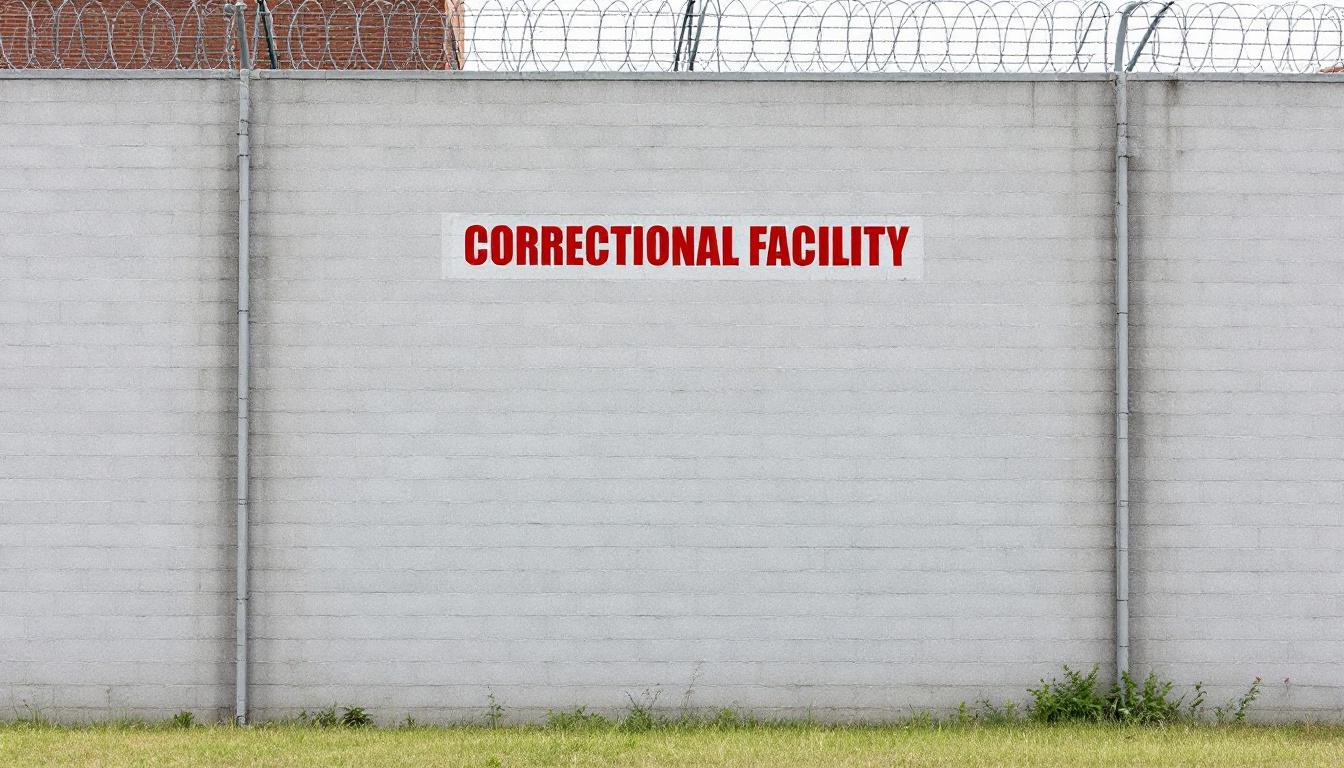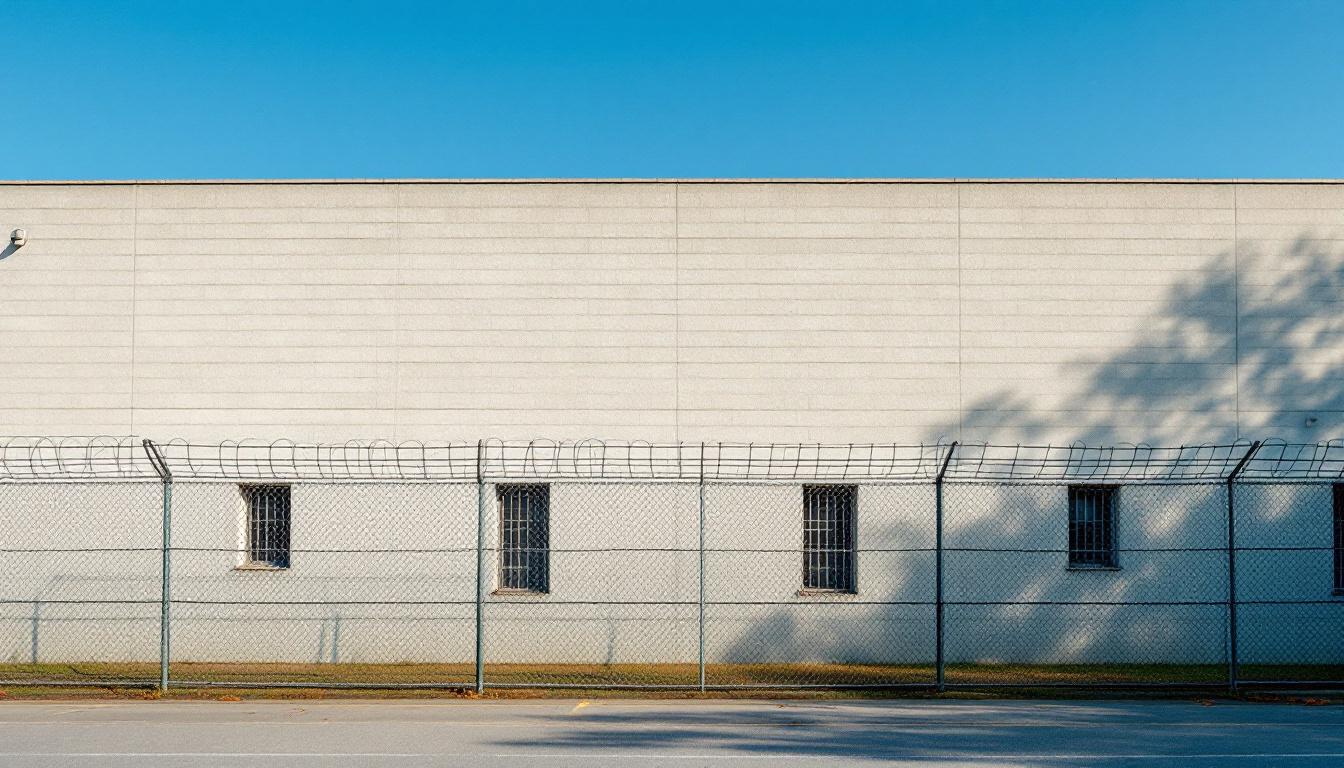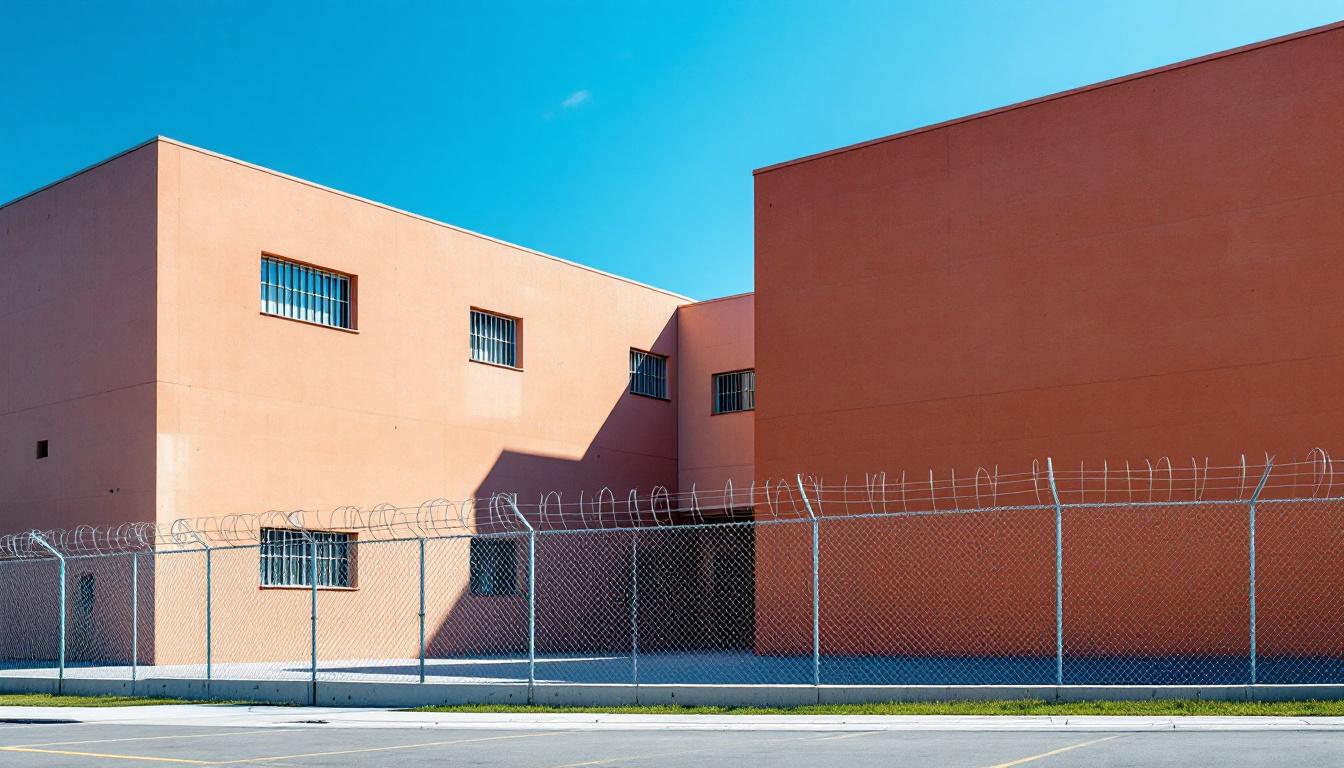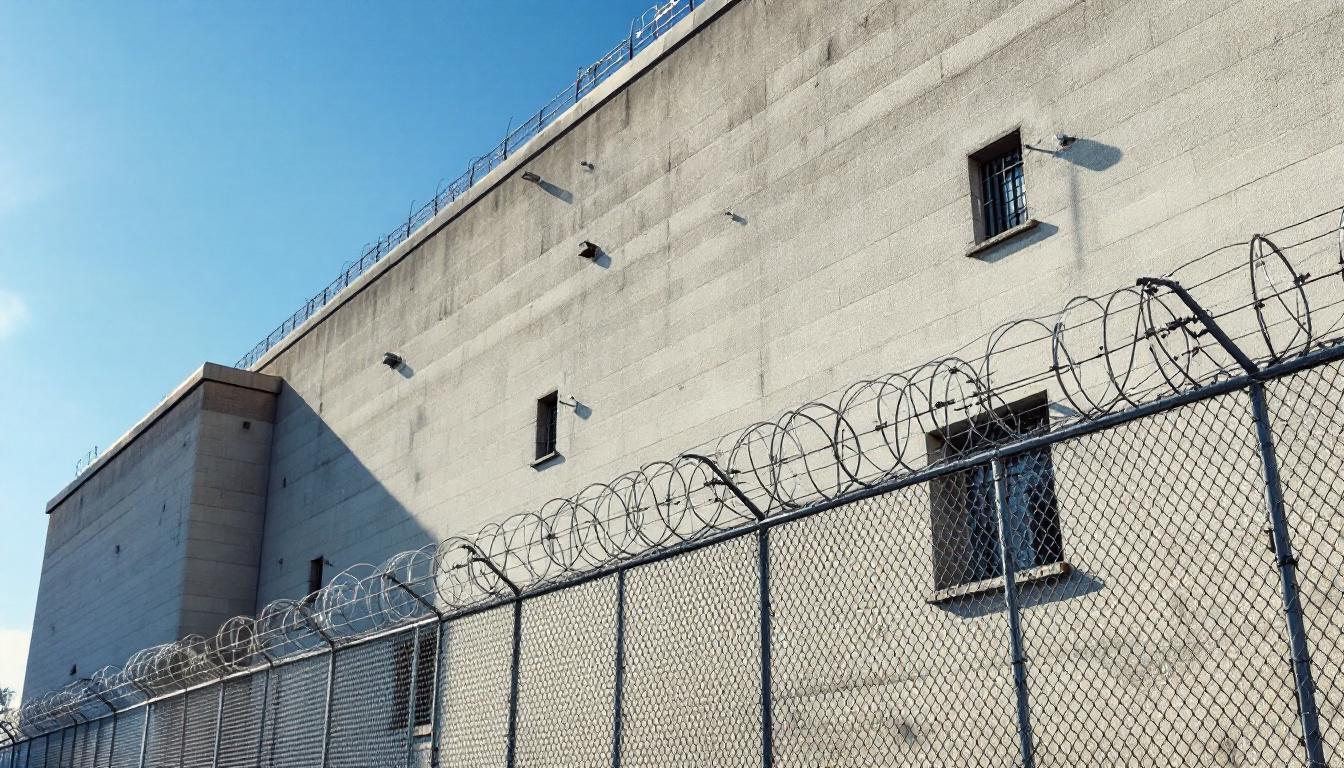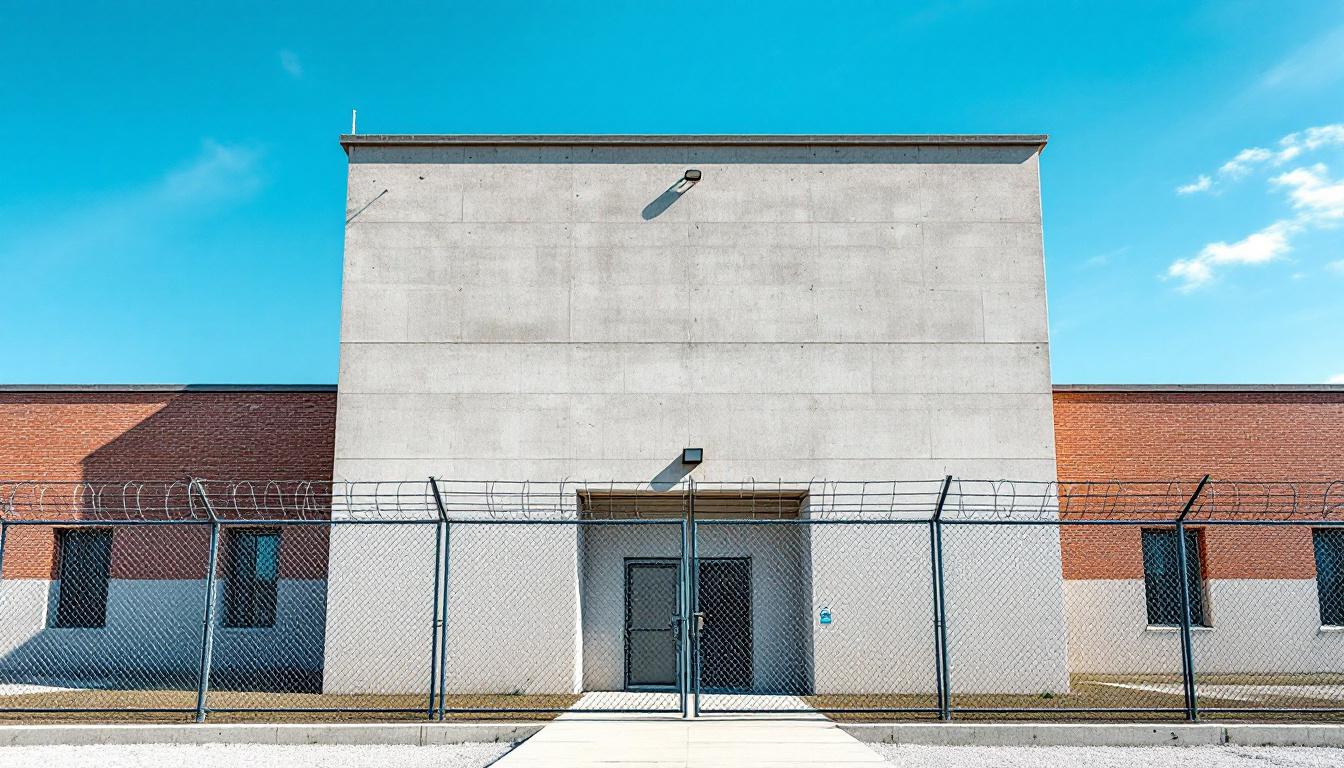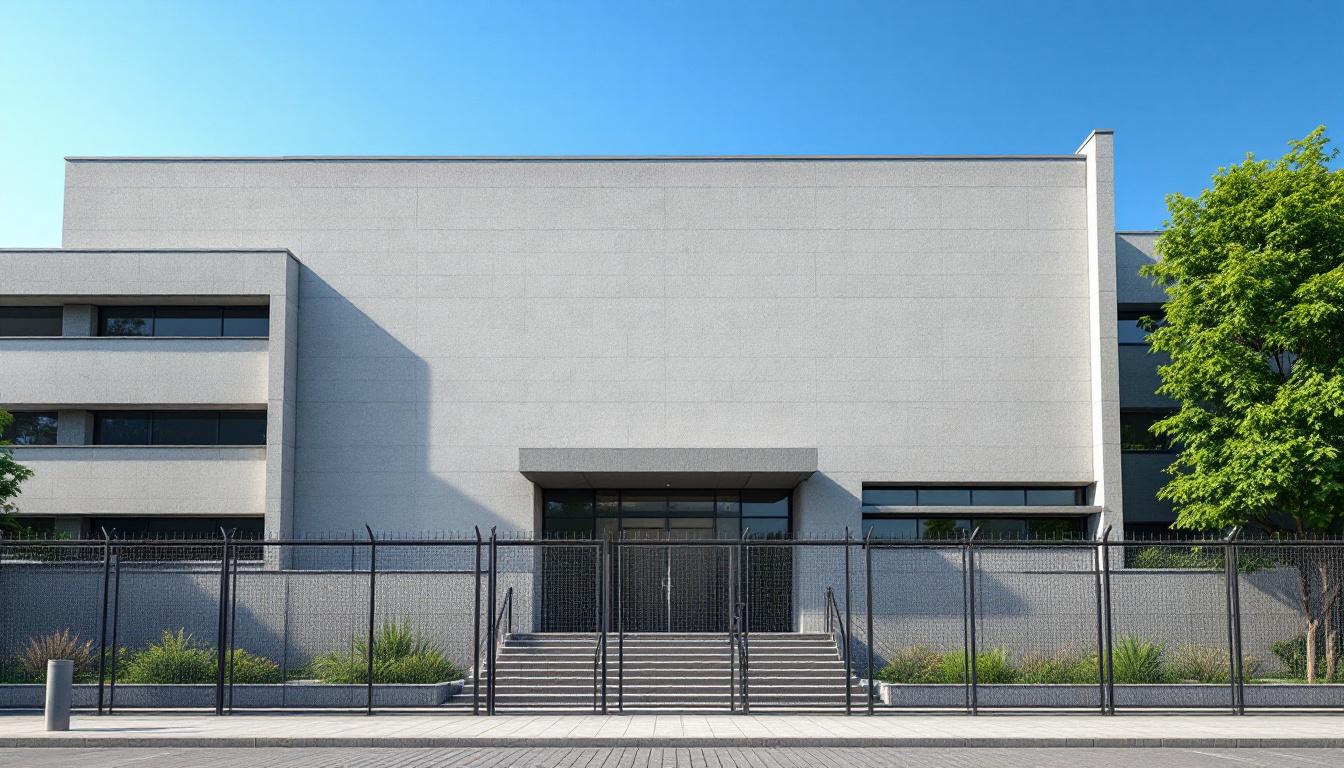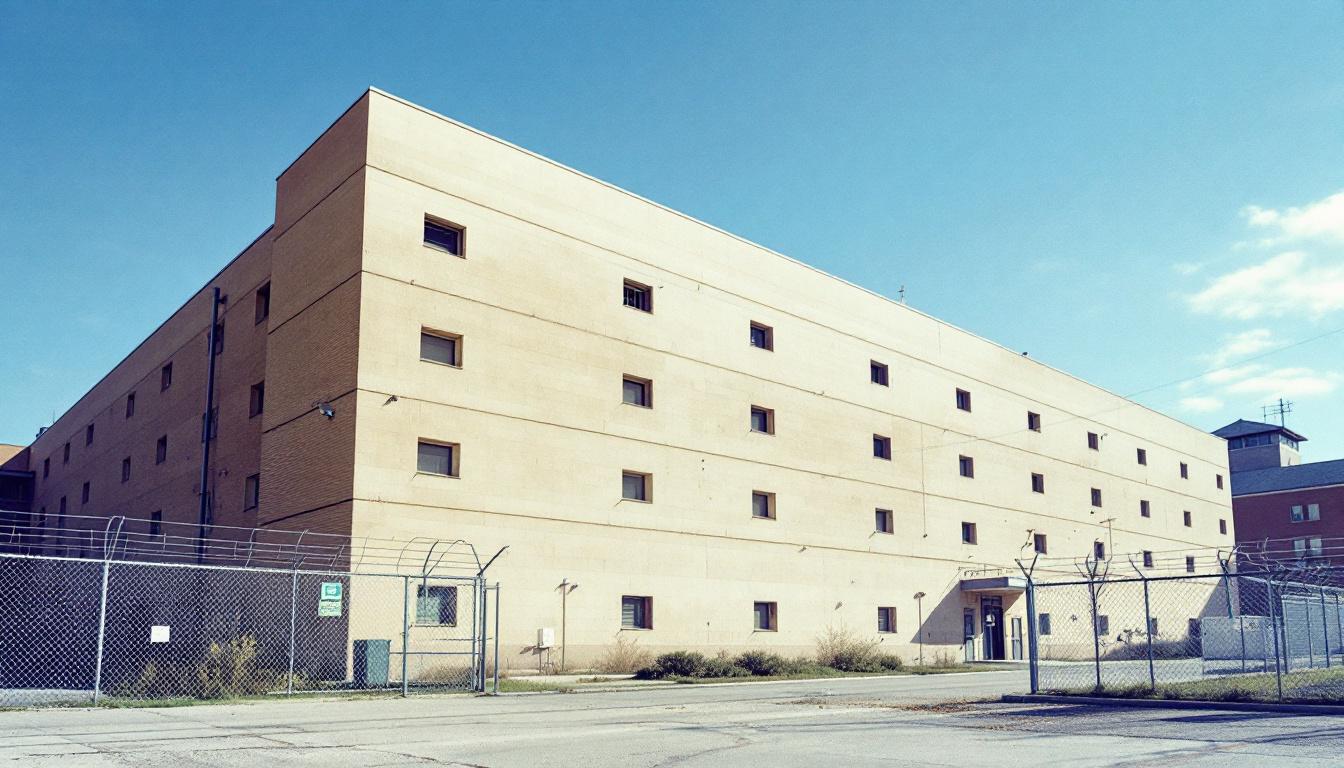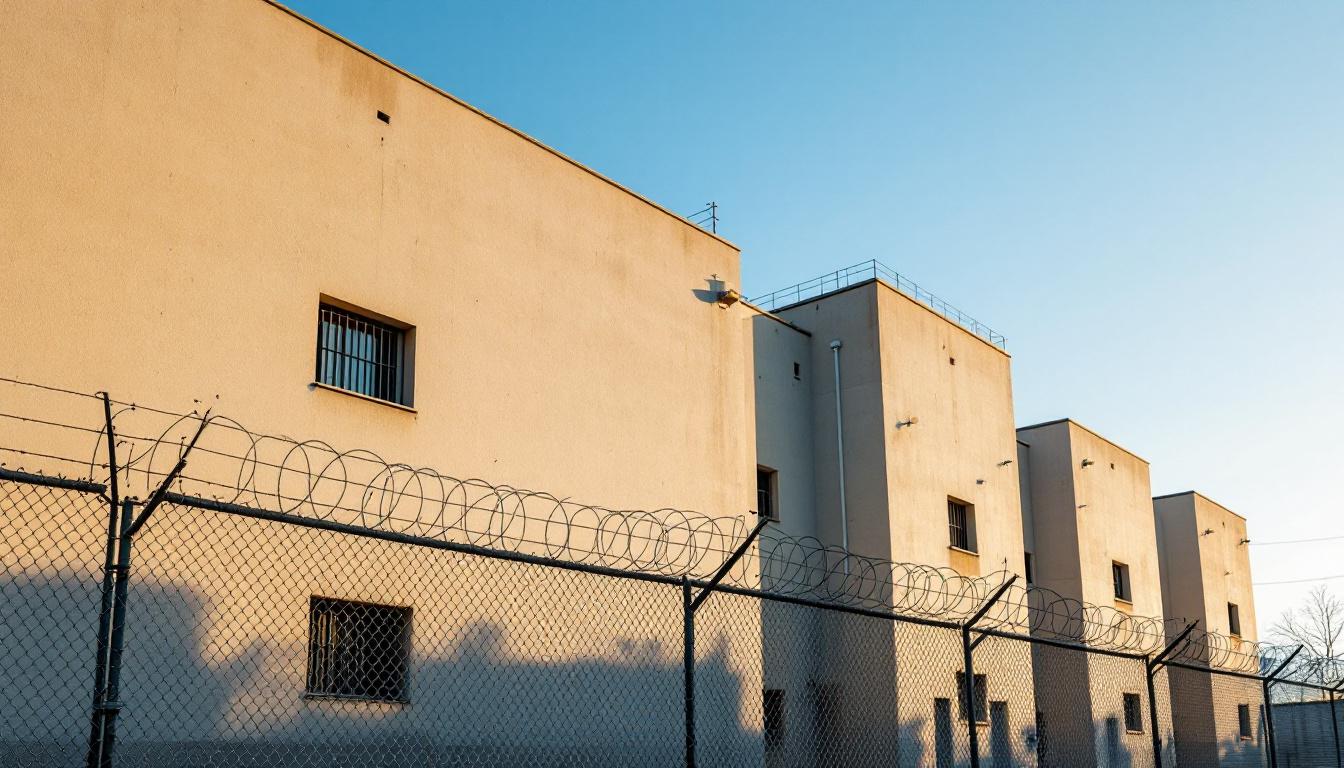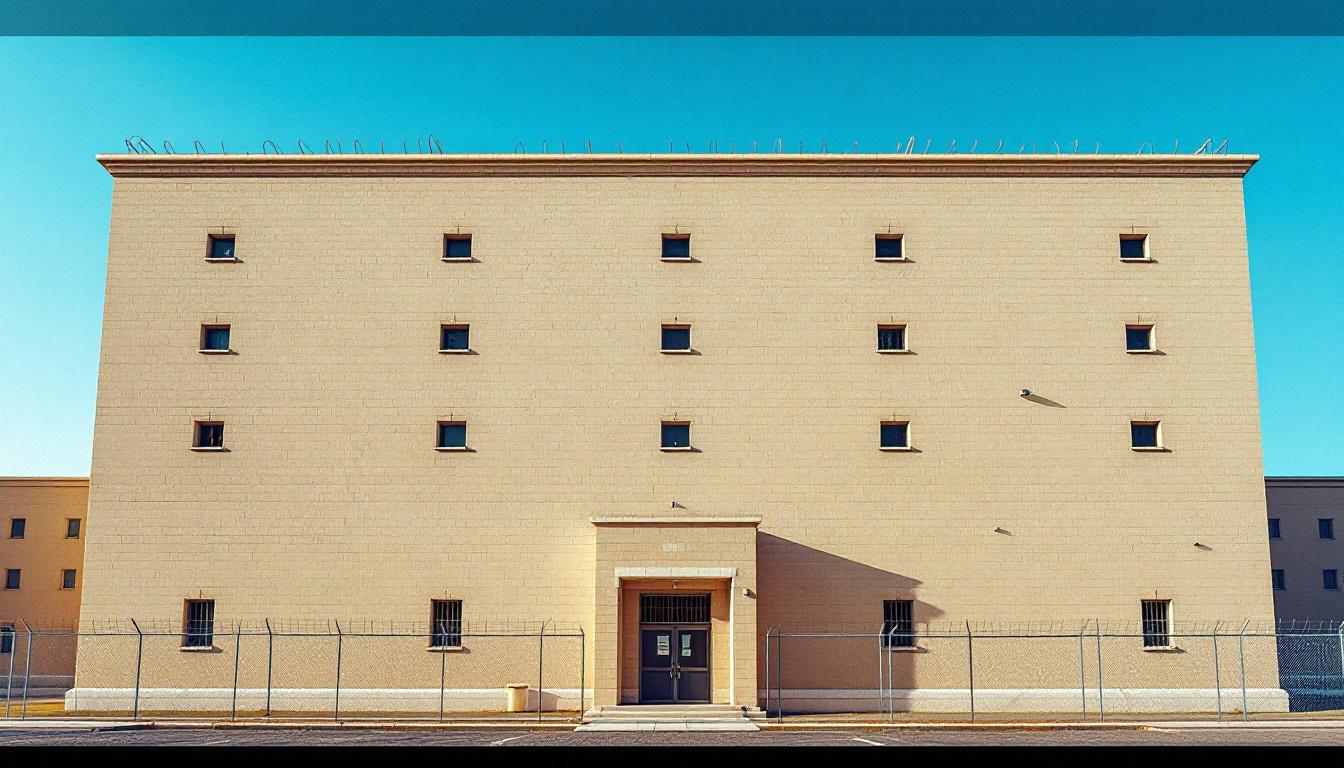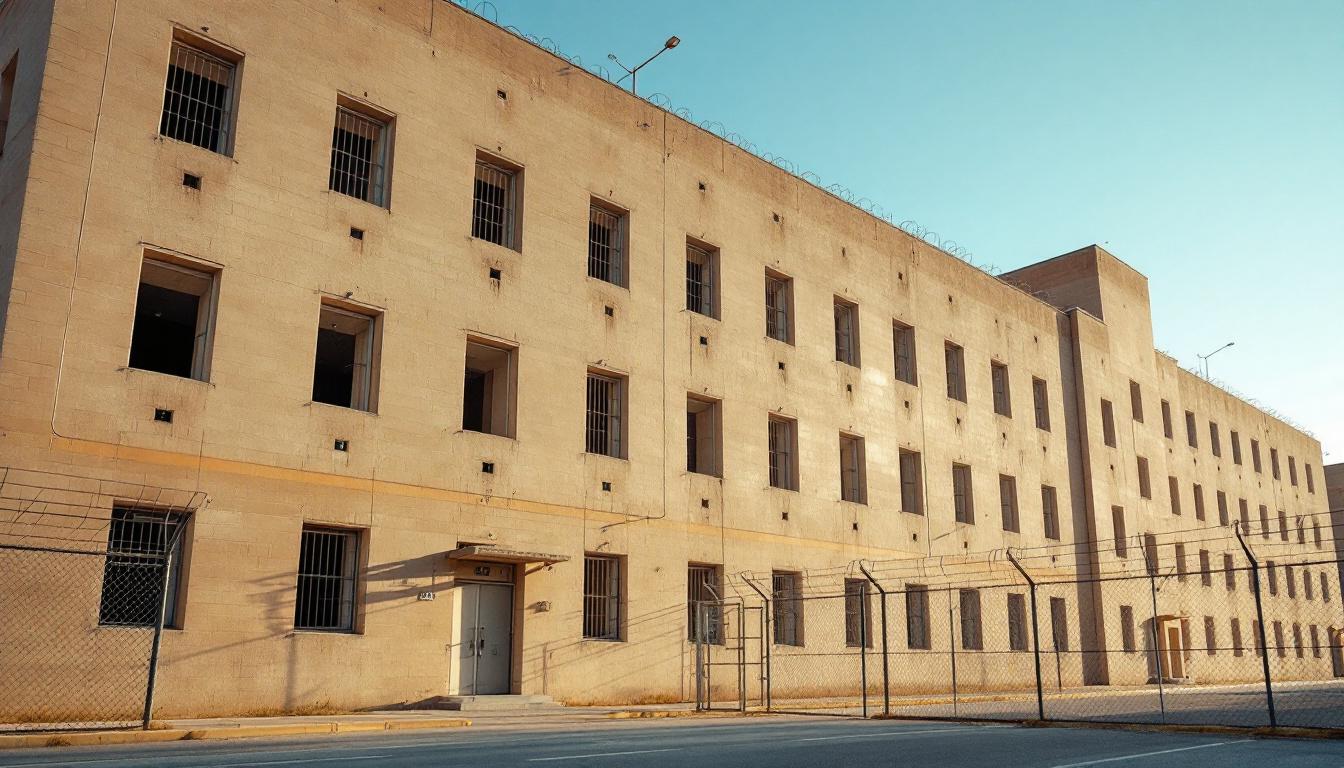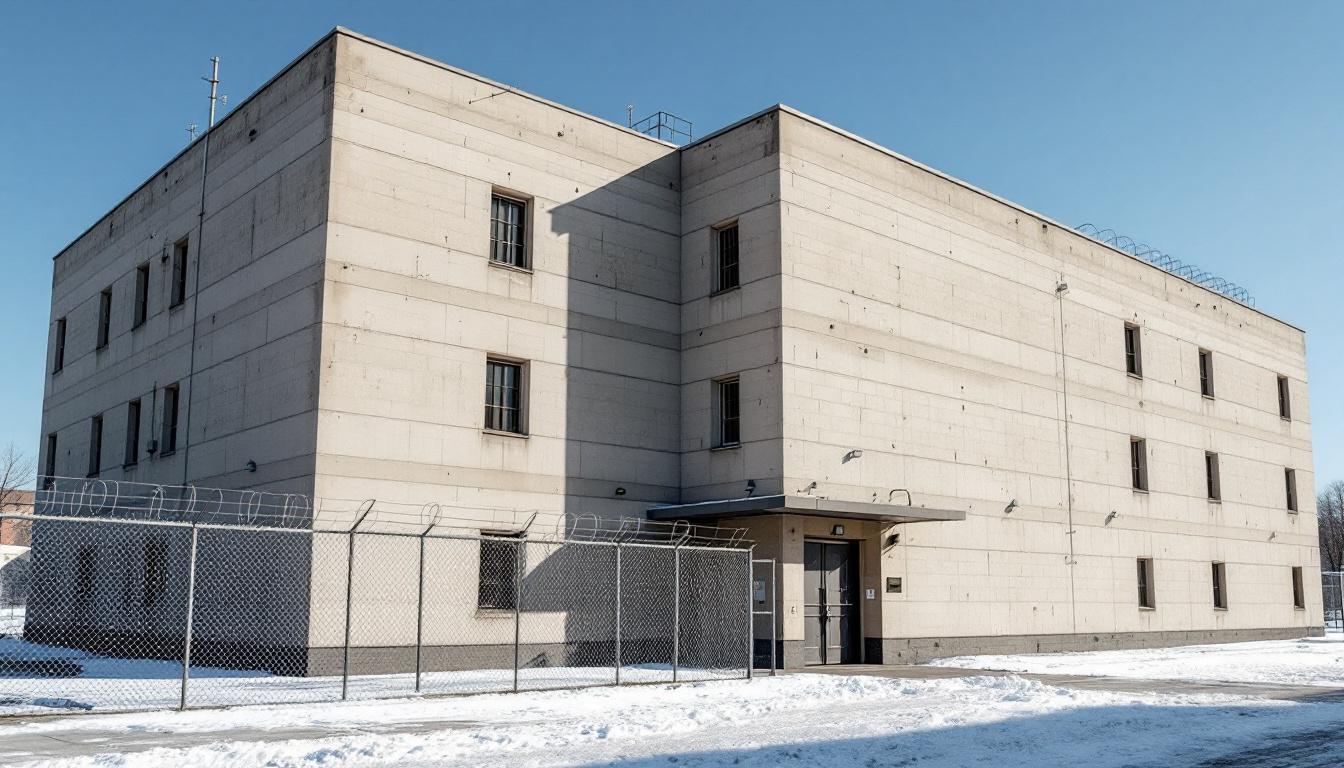
Quick Navigation
How to contact an inmate at Dearborn County Jail
This comprehensive guide will walk you through how to connect with an inmate at Dearborn County Jail. Follow the steps below to find an inmate and send letters and photos:
- Search for the inmate using our search tool below
- Create your account or log in to Penmate
- Write your message (up to 6,000 characters)
- Send instantly - inmates receive printed copies daily
Find an Inmate
Search for an inmate to start communicating today
Tip: You can search by first name, last name, or inmate ID number
To contact a person at Dearborn County Jail start by searching for the person on the official facility website. Perform a search by following these steps:
- Step 1: Enter their first name and last name into the search form and click "Search"
- Step 2: Locate their inmate record
- Step 3: Write down their Inmate ID and any housing information provided
Important! Be sure to enter the person's full name. Nicknames should not be used.
How to Send Messages to Inmates

You can use your phone or computer to send emails, letters, and photos to an inmate. Messages are sent electronically to inmate tablets or kiosks at the facility. If you would like to send a message, start by searching for an inmate at Dearborn County Jail.
Sending Photos and Postcards

A great way to send love and support to a loved one at Dearborn County Jail is to send photos and postcards. It only takes a few minutes to send photos from your phone and it makes a huge difference. You can also mail postcards with words of support and inspiration, or design your own postcard for special moments like birthdays and holidays.
Important! Be sure not to send any explicit photos or they may not be approved by the facility. You can also use a photo printing app like Penmate to make sure your photos are printed at the correct size (4x6 or 3x5) and are mailed according to the rules and regulations of Dearborn County Jail.
Frequently asked questions about Dearborn County Jail
-
How long does it take to deliver a message?
If you're sending an email message your letter is usually delivered within 24-48 hours. For messages sent via mail you should expect delivery within 3-7 days. All messages will need be approved by Dearborn County Jail.
-
How much does it cost to send a message to Dearborn County Jail?
You can send a message free using your phone or mail a message via USPS for the price of a $0.60 stamp and envelope. You can also purchase credits or e-stamps from services starting at $1.99.
-
What services can I use to contact an inmate at Dearborn County Jail?
Penmate
You can use Penmate to send letters and photos to an inmate from your phone. It's an easy way to stay in touch during your loved one's incarceration. Use the inmate locator to find an inmate's location and contact information, then you can send messages within a few minutes.
Securus messaging
Securus may be another option for communicating with an inmate at Dearborn County Jail. You can create a friends and family account and purchase credits to send messages. All messages will be reviewed and must be approved by the facility.
JPay
Some county jails and state prisons may support sending messages with JPay. You must register an account with the system, find your loved one, and purchase stamps to send messages. For some locations you can also attach photos.
Smart Jail Mail
You may also check if Smart Jail Mail is available at Dearborn County Jail. Smart Jail Mail is operated by Smart Communications and has contracted with some state and county jails. After purchasing credits, your messages and photos are sent to the facility, printed out, and then handed out to your loved one.
-
What is the mailing address of Dearborn County Jail?
Mailing address:
Dearborn County Jail
301 W High St
Lawrenceburg, IN 47025
Phone: (812) 537-3431Business hours:
- Monday: 8:00 AM – 4:00 PM
- Tuesday: 8:00 AM – 4:00 PM
- Wednesday: 8:00 AM – 4:00 PM
- Thursday: 8:00 AM – 4:00 PM
- Friday: 8:00 AM – 4:00 PM
- Saturday: Closed
- Sunday: Closed
-
What are the visiting hours at Dearborn County Jail?
Visiting hours at Dearborn County Jail vary by housing unit and security level. Generally, visits are scheduled on weekends and holidays, with some facilities offering weekday visits. Contact the facility directly at (812) 537-3431 or check their website for the current visiting schedule. Visits typically last 30-60 minutes and must be scheduled in advance.
-
What items are prohibited when sending mail to Dearborn County Jail?
Prohibited items typically include: cash, personal checks, stamps, stickers, glitter, glue, tape, staples, paperclips, polaroid photos, musical or blank greeting cards, hardcover books, magazines with staples, and any items containing metal or electronics. Only send letters on plain white paper with blue or black ink. Photos must be printed on regular photo paper (no Polaroids). Always check with Dearborn County Jail for their specific mail policies.
-
How do I send money to an inmate at Dearborn County Jail?
You can send money to an inmate at Dearborn County Jail through several methods: 1) Online using JPay, Access Corrections, or the facility's approved vendor, 2) Money orders mailed directly to the facility with the inmate's name and ID number, 3) Kiosks located in the facility lobby, or 4) Over the phone using a credit or debit card. Fees vary by method, typically ranging from $2.95 to $11.95 per transaction.
-
Can I schedule a video visit with an inmate at Dearborn County Jail?
Many facilities now offer video visitation as an alternative to in-person visits. At Dearborn County Jail, video visits may be available through services like Penmate, Securus Video Connect, GTL, or ICSolutions. Video visits typically cost $10-20 for 20-30 minutes and must be scheduled in advance. You'll need a computer or smartphone with a camera and reliable internet connection. Contact the facility for their specific video visitation policies and approved vendors.
-
What identification do I need to visit an inmate at Dearborn County Jail?
All visitors must present valid government-issued photo identification such as a driver's license, state ID, passport, or military ID. Minors must be accompanied by a parent or legal guardian who can provide the minor's birth certificate. Some facilities require visitors to be on the inmate's approved visitation list, which may require a background check. Contact Dearborn County Jail for specific ID requirements and visitor approval procedures.
-
How can I find out an inmate's release date?
To find an inmate's release date at Dearborn County Jail, you can: 1) Use the online inmate search tool if available, 2) Call the facility's records department, 3) Contact the inmate's case manager or counselor, or 4) Have the inmate provide this information during a call or visit. For privacy reasons, some facilities only release this information to immediate family members.
Facility Overview
Official Website

About Dearborn County Jail
Correctional facilities throughout the Midwest region serve as crucial components of the justice system, and within Lawrenceburg's community landscape, the Dearborn County Enforcement Center, IN operates as a local detention facility addressing the area's correctional needs. This IN correctional facility typically functions as part of the broader network of institutions serving southeastern Indiana, working to balance public safety requirements with rehabilitation-focused approaches that may benefit both individuals in custody and the surrounding community.
The facility generally maintains its role within Dearborn County's justice system through collaborative partnerships with local courts, law enforcement agencies, and community organizations that often support reintegration efforts. Programs and services at the center may include educational opportunities, substance abuse counseling, and work-related training designed to help prepare individuals for successful community reentry. The population services typically encompass various support mechanisms that address both immediate custody needs and longer-term rehabilitation goals, reflecting contemporary approaches to correctional management that emphasize community safety alongside personal development opportunities for those in the facility's care.
Programs & Services
Through comprehensive programming designed to address multiple facets of personal development, supportive services at the Dearborn County Enforcement Center create pathways for meaningful transformation within the incarcerated population. The facility's approach recognizes that successful reintegration requires addressing educational deficits, developing marketable skills, and strengthening personal foundations that support long-term stability. These initiatives typically emphasize practical application and real-world relevance, ensuring that participants acquire tools and knowledge directly applicable to their future endeavors in the community.
Educational programs may supply foundational academic instruction, including GED preparation and basic literacy enhancement, while vocational training opportunities often focus on developing trade skills that align with regional employment markets. The population frequently engages in hands-on learning experiences that combine theoretical knowledge with practical application, fostering both competency and confidence. These educational and vocational initiatives typically emphasize progressive skill-building, allowing participants to advance through structured curricula that accommodate varying educational backgrounds and learning styles.
In addition to these foundational offerings, support services encompass faith-based programs that provide spiritual guidance and community connection, alongside parenting classes designed to strengthen family relationships and develop effective child-rearing strategies. Employment readiness programming typically addresses essential workplace skills, including interview techniques, resume development, and professional communication, while also focusing on the practical challenges of securing and maintaining employment post-release. These supportive interventions often incorporate group discussions and peer mentorship opportunities, creating an environment where the population can share experiences and develop networks that extend beyond their period of incarceration.
Daily Life & Visitation
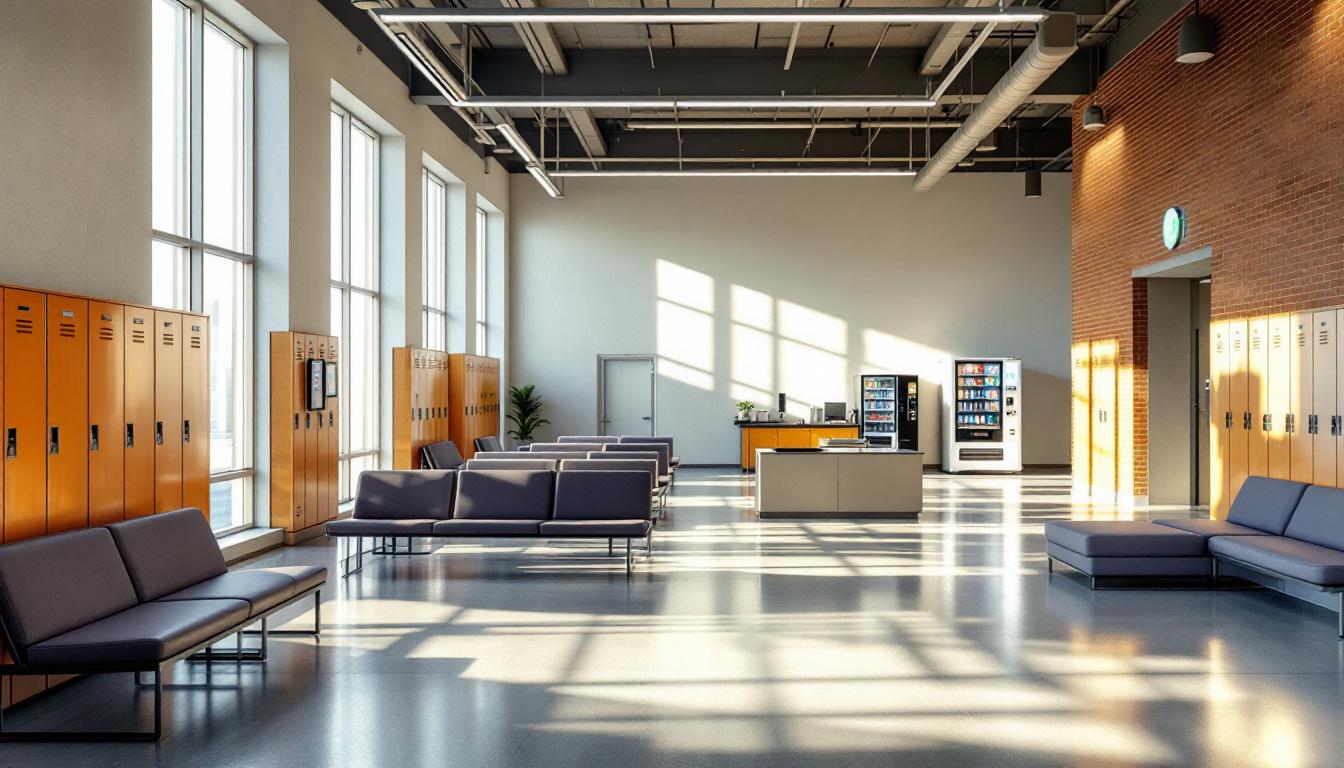
The carefully orchestrated organizational framework at Dearborn County Enforcement Center shapes every aspect of the population's daily experience, with structured routines now serving as the foundation for maintaining order and providing stability. Residents typically follow a regimented schedule that regularly includes designated times for meals, programming activities, and recreational periods, with facility staff coordinating these movements to ensure smooth operations throughout the housing units. The population generally participates in count procedures at various intervals, while work assignments and educational programming supply additional structure to help residents maintain productive daily routines.
Living accommodations within the facility typically feature dormitory-style housing units or individual cells, depending on classification levels and security requirements, with residents generally sharing common areas for dining and recreational activities. The population usually receives three meals per day in designated dining areas, with menus that often follow state nutritional guidelines and accommodate basic dietary restrictions. Personal property allowances may include essential hygiene items and limited personal belongings, while commissary services typically provide additional items for purchase to supplement basic necessities.
In addition to this structured daily framework, recreational opportunities often include access to television viewing areas, library services, and outdoor exercise periods when weather and security conditions permit. The population typically has access to scheduled visitation periods with family members and approved visitors, along with telephone privileges that allow for regular communication with loved ones outside the facility. Despite this controlled environment, work assignments within the facility may include kitchen duties, maintenance tasks, and cleaning responsibilities that help residents contribute to daily operations while developing job skills, with structured programming schedules often incorporating educational classes, substance abuse counseling, and other rehabilitative services designed to support successful reintegration into the community.
Ready to Connect?
Start communicating with your loved one today
Search for an Inmate
